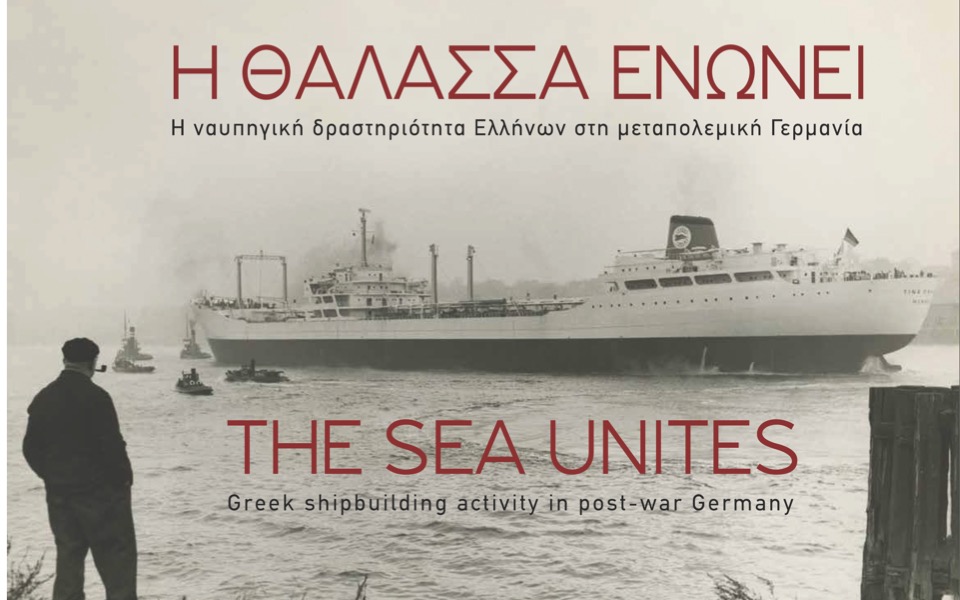Post-WWII Greek-German ties in shipping explored in new book

A photograph taken in late March 1953 shows Aristotle Onassis and West Germany’s then minister of finance, Ludwig Erhard, just before the launch of the Olympic Cloud tanker, the first ship built by AG Weser in Bremen after World War II. Greece and Germany had been enemies just a few years earlier, with the latter having destroyed three-quarters of the former’s fleet and dealing the country’s economy a catastrophic blow.
Greece in the early 50s was a country decimated by war and civil strife, struggling to heal its wounds. So how did the Greek business community manage to build a new and solid relationship between two peoples who had been separated by so much hate? The answer is interesting and it can be found in a new richly illustrated book published by Argo and titled “The Sea Unites,” written by George M. Foustanos, founder of online maritime museum the Greek Shipping Miracle (www.greekshippingmiracle.org).
The purpose of the bilingual (Greek-English) book is to examine how the Greek businessman took an interest in German shipyards.
“Forced to rebuild their fleet from square one and based out of the international shipping centers of New York and London, at the same time that Greece was engaged in a fierce civil war, Greek shipowners led by Aristotle Onassis developed bold initiatives to construct a significant number of tankers in the West German yards, which had also suffered extensive damage from the Allied Forces’ bombing raids,” writes Foustanos in the prologue of this coffee-table book, which presents fascinating photographs from those and later years.
“On the other hand,” the author notes, “Germany was forced to surrender its entire fleet to the victors after its defeat in both world wars and was thus left without an oceangoing fleet. Even worse, the Allied Forces had banned the Germans from engaging in any maritime activity other than that which concerned the servicing of the country’s domestic needs. The restrictions were extended to a ban on the construction of oceangoing ships, in effect severing a branch of the German economy which, in the pre-war years, had established the country as the second most important shipbuilding center in the world,” he adds.
Massive orders by Greek businessmen were crucial in helping the sector rebound and in reviving Germany’s shipyards.





